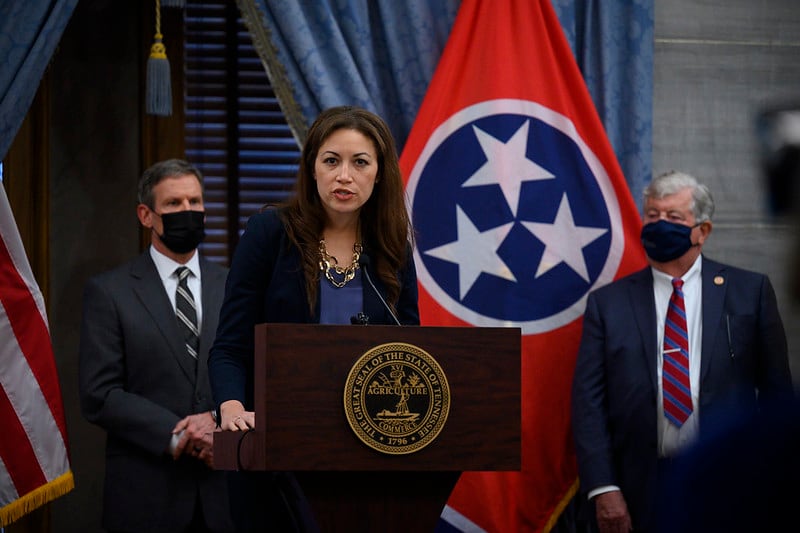Tennessee’s education department will spend the bulk of its $491 million share of one-time federal funding on new literacy, summer camp, and tutoring initiatives as the state seeks to accelerate student learning after a year of pandemic-related disruptions.
The department also will prioritize classroom resources, teacher training, and programs to prepare more candidates for the teaching profession.
The state released its spending plan this week for its portion of the nearly $4.2 billion that Tennessee is getting for K-12 education through four COVID-19 relief and economic stimulus packages passed by Congress.
School districts will receive the vast majority of the $4.2 billion. They have until June 1 to decide how to spend the largest and most recent round of funding provided under the Biden administration.
The massive infusion of cash — which amounts to two-thirds of what the state spends in a single year on its students — presents a historic opportunity to transform public education in a state that ranks near the nation’s bottom for per-pupil spending.
But all of the money must be spent or allocated by the fall of 2024, which means administrators likely won’t want to put it toward recurring expenses such as raising teacher salaries or hiring full-time specialists to support schools.
Gov. Bill Lee has called the amount of funding “historic” and urges local education officials to “keep student achievement at the center of all decision-making.”
The state education department’s plan for using its $491 million share is due to the U.S. Department of Education on June 7.
The department plans to spend $170.5 million — a third of its allocation — on programs that aim to help students catch up and accelerate learning. Those include learning camps starting this summer and after-school tutoring programs set to launch in the fall.
Another $120.7 million will bolster literacy work in a state where only a third of students test as proficient readers. The money will pay for new resources for classrooms and families and new training for teachers to ground their instruction in phonics.
This month, about 12,000 teachers in prekindergarten through the fourth grade began a two-week training program through an $8 million, two-year contract with New York-based TNTP Inc., a nonprofit group that provides teacher training programs.
Other planned investments include:
- $56.5 million for professional development and additional resources to help teachers prepare for their courses.
- $35 million to support Tennessee school districts’ adoption of new math textbooks in 2022-23.
- $32.6 million for grants going to 21 districts to reimagine high school in ways that better equip students for college and careers, plus a new program to expand access to advanced coursework so high schoolers can earn college credit. The Tennessee-based Niswonger Foundation will recruit teachers and students into Tennessee’s new Advanced Placement Access for All Program, train teachers, and help develop new curriculum.
- $32 million for online resources for teaching and learning and improvements for school districts.
- $21 million to grow Tennessee’s educator ranks, including grow-your-own initiatives in which districts and teacher training programs partner to provide innovative, no-cost ways to enter the teaching profession.
- $17.8 million to support student mental health through grants to school systems or new investments to help schools support students who have experienced trauma in their lives.
Education Commissioner Penny Schwinn said her department’s spending priorities are based in part on feedback from district leaders and education advocates from across Tennessee.
She plans to spend about $20 million to hire staff and establish systems to monitor how the federal money is being spent, both at the state and local levels. This spring, the legislature authorized the department to hire 22 staff members for that work.
Schwinn has encouraged district leaders to use at least 1% of their federal relief and stimulus funds to establish similar monitoring protocols at the local level.
The state also has an ongoing list of grant opportunities and free resources for students, families, teachers, schools, and districts.
Some grants are competitive, such as one to provide new equipment for schools with state designations specializing in teaching science, technology, engineering, and math. Other resources — like free reading materials for children in kindergarten through the second grade — are available for any Tennessee family who orders them.
You can learn more about the state department’s plan here.






